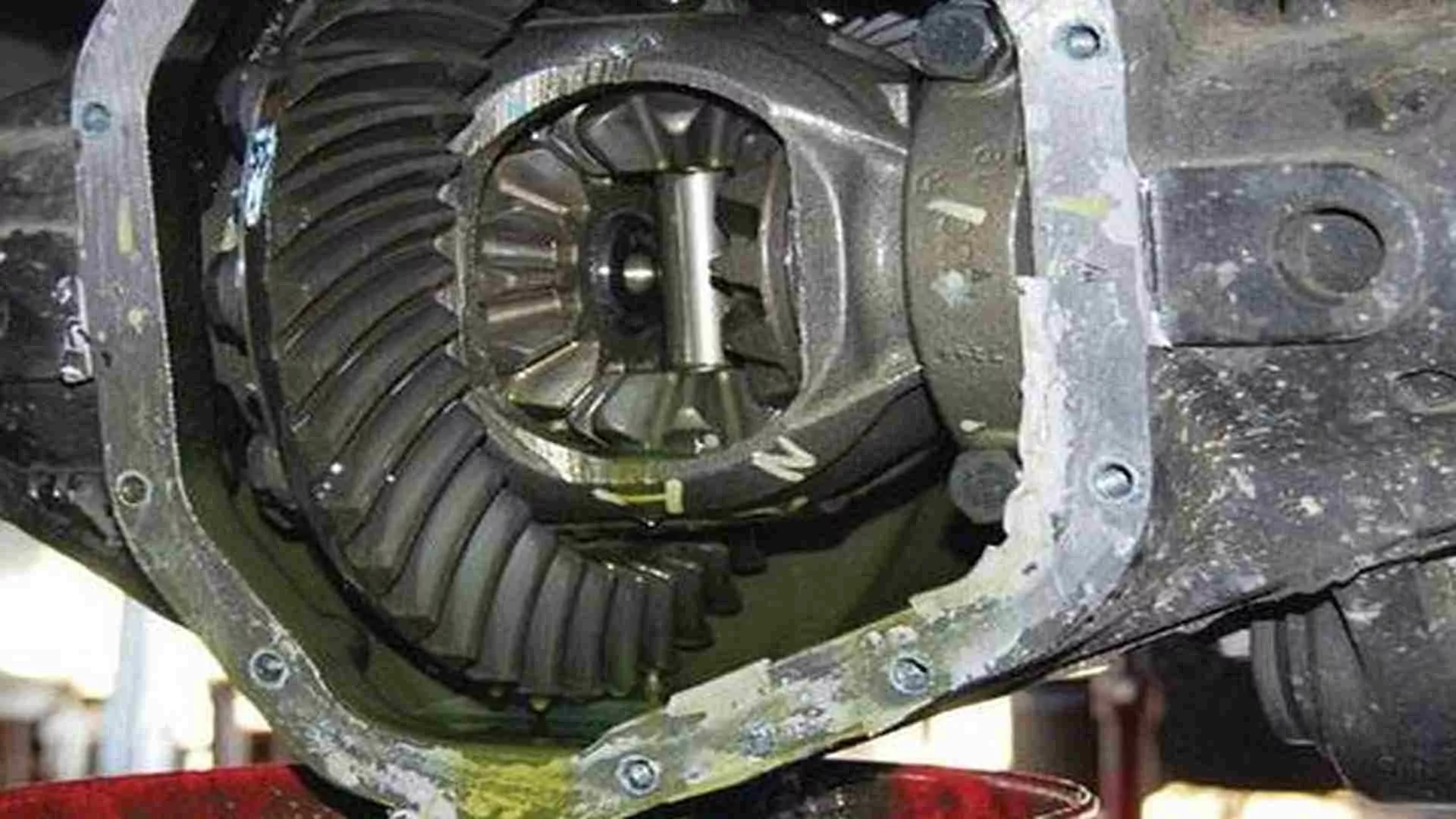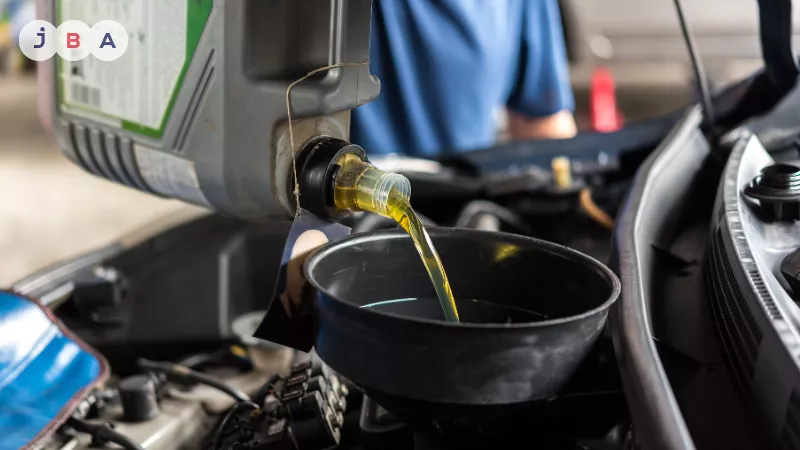- Participate Online Auction
- login
- Register Auction
-
JBA IndonesiaBantuan & Panduan

The function of differential oil is to lubricate the components inside the differential to reduce friction and keep the wheel rotation smooth. The differential itself is the part of a car that transfers power from the engine to the wheels so the vehicle can move.
With differential oil, the components inside the differential won’t wear out quickly, won’t produce disturbing noise, and the car’s performance will remain optimal. To better understand its function, please read our explanation below.
Differential oil is a special lubricant used in a car’s differential. The differential is a crucial part of the drivetrain system. It is located at the bottom of the car, right between the rear wheels (for rear-wheel-drive cars) or the front wheels (for front-wheel-drive cars). Its main role is to distribute and transfer rotational power from the engine through the transmission to drive the wheels evenly.
Because it works under heavy loads, holding rotational force and the car’s thrust, the differential requires a special lubricant, differential oil. With this oil, the components inside can move more smoothly, resist wear, and stay protected from excessive friction that could lead to damage. This is why differential oil is different from engine oil, as it is specifically formulated to lubricate gears and mechanisms in the differential that work under high pressure.
Inside the differential, there are many gears and metal components that constantly move and rub against each other. Oil acts as a coating that minimizes friction so movement becomes smoother. Without sufficient lubrication, metal-to-metal contact will create excessive heat, noise, and faster wear. If left unchecked, the differential could seize up or suffer severe damage, with repair costs much higher than simply replacing the oil regularly.
When a car is in use, especially on long trips or when carrying heavy loads the differential works hard and generates heat. The role of differential oil here is to help absorb heat from the moving components and release it so that temperatures remain controlled. Without this cooling, the differential could overheat, leading to reduced performance, faster oil degradation, or even cracks in the metal components.
Oil not only lubricates but also forms a protective layer with special additives that prevent rust and corrosion. This protection is essential because the differential operates in a damp environment and is easily exposed to contaminants like water and road dust. Moreover, the oil helps prevent wear caused by small particles or dirt that may enter. With this oil layer, contaminants won’t directly damage the gear surfaces and other components.
The final function of differential oil is ensuring that power from the engine can be transmitted smoothly to the drive wheels. When the oil performs well, wheel movement is smoother, more stable, and uninterrupted. As a result, the car becomes more comfortable to drive, especially at high speeds or on uphill roads. If the oil quality has deteriorated, engine power will feel less optimal, the car will feel heavy, and vibrations or noise may appear.

Sumber: otomotif.kompas.com
Risks If Differential Oil Is Not Replaced
From the explanation above, it is clear that differential oil is essential for the performance and durability of the differential. If not replaced regularly, car performance can decline and serious issues may occur. Here are some potential risks:
The role of differential oil is to provide lubrication so that gears and metal components don’t rub directly against each other. Without oil, wear occurs more quickly and may even cause permanent damage. In severe cases, the differential can seize up and prevent the vehicle from functioning properly.
Dirty or depleted oil can no longer dampen friction. This makes the differential produce loud noises, especially when accelerating or turning. Vibrations may even reach the cabin, reducing driving comfort.
As mentioned earlier, differential oil helps absorb heat. When the oil quality drops, excessive friction generates high heat. Without cooling from the oil, the differential’s temperature may rise drastically, causing components to expand or deform. This condition is highly risky as it accelerates damage and reduces vehicle performance.
Regularly changing differential oil is far cheaper than repairing a damaged differential. If neglected, the damage may spread and require expensive component replacements.
In general, differential oil should be replaced every 40,000 km or as stated in the car’s manual. This figure may vary depending on the type of car, differential, and driving conditions. If the car is frequently used for long trips, uphill roads, or carrying heavy loads, differential oil typically needs to be replaced sooner.
Besides following the regular schedule, several symptoms may indicate that differential oil is no longer suitable, such as:
If these signs appear, it’s best to replace the differential oil immediately to prevent further damage. In summary, differential oil plays a vital role. By replacing it regularly, you can keep your car’s performance optimal.
If you are looking for a vehicle for personal or operational needs, JBA, a private auction house, is the right place. Every week, we regularly hold auctions, including company car auctions, through a safe and transparent process.
With thousands of used cars available, you can easily find a vehicle that suits your needs. For more information or inquiries about JBA auctions, please contact us via WhatsApp at +62 817-0993-078.

There are several...

There are several causes of...

Affordable sedans priced...
